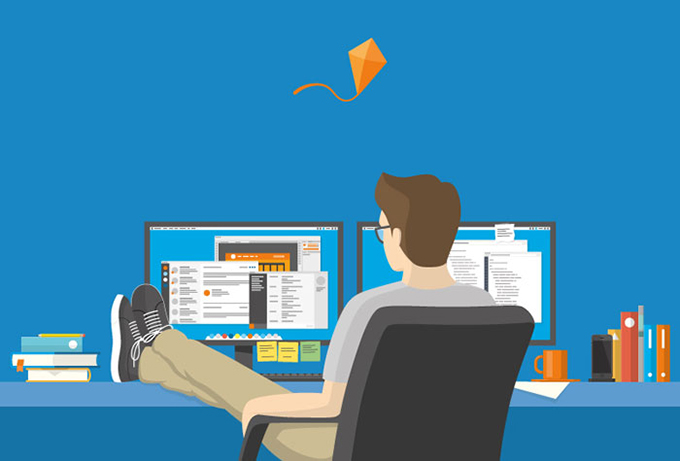
I happily resigned from a continuing academic position five years ago.
After almost twenty years in various teaching and research positions within the humanities and creative arts, I needed a change. I had enjoyed a great career, exceeded all my research and publication goals, and taught thousands of students. It seemed churlish to continue hogging a seat at the table when I no longer wished to be there. It was time for me to go.
But not completely away.
Road to Freelancing
In 2014, I started freelance consulting on a full-time basis. For both practical and tactical reasons, I remained within the orbit of academia. I wanted to focus on research development opportunities and deploy my training, expertise and networks as leverage while maintaining an affiliation with this intellectual and pedagogical space.
My consultancy had modest beginnings. I picked up a handful of hours doing miscellaneous research support work at a local Western Australian university. My initial duties included writing the Excellence in Research for Australia (ERA) research statements for practice-led research outputs and proofreading postgraduate theses.
Within a few years, my consultancy grew to encompass a mix of high level research administration work (including taking on the role of Discipline Champion of creative arts and writing for a local university’s ERA 2015 submission and preparing the portfolios for assessment); research development support at faculty and school levels (where I advised on several successfully funded grant applications including one ARC Linkage and two Discovery projects); and research project management (including serving as the project manager for three years on a transnational ARC Discovery project).
My editorial services also diversified. I worked for a research centre as the managing editor overseeing the publication of a journal double issue. In addition, I started to freelance as a publication coach, overseeing over a dozen articles and chapters from early draft through to eventual publication.
My prior track record in research, publication and administration facilitated my entry into this eclectic range of consultancy work. I targeted a selected range of research development and support work—basically, the types of work that I enjoy doing and reckon I am rather good at. Additionally, I accepted some jobs not only for the unique challenges they presented, but also in order to strategically include that work diversity in my CV and maximise future opportunities for this jobbing freelancer.
There are, of course, many types of consultants and equally as many diverse routes to becoming a freelance consultant. I have charted only one possible pathway, one which I partly curated and partly fell into, one that sparks joy (!) for me.
Lessons Learned
My freelance work over the past five years has been a bricolage of one-off editing jobs, casual work and short term contracts.
Technically speaking, I combine freelance and contract work, though I primarily self-identify as a freelancer. My most substantial contract in the past five years was a one-year fixed term contract for 15 hours per week. Others were for considerably less; shorter hours, fewer weeks and lower pay.
Nevertheless, for several years my assorted contracts at a single institution amounted to 37.5 hours paid work per week; in fact, I was not allowed by Human Resources to undertake additional hours and consequently I had to negotiate with my various line managers to revise my allocated hours and pay levels.
I did not have to apply for any of these jobs, too, which affirms for me the importance of having good personal and professional networks. Indeed, in most cases, I was approached directly by the managers or chief investigators of the projects in question.
Such institutionally based contract work can be rewarding intellectually—and financially.
I am paid award rates for the different types of work I do. Equally important, such university contracts generally allow my superannuation account to be topped up. At the same time, however, many other work entitlements like paid leave are among the first things to go when freelancing including on most university casual contracts.
I am admittedly still learning how to negotiate these myriad complexities. Nevertheless, I feel that I am appropriately remunerated for the type and amount of work that I do, so I have no complaints.
Means and Modes
This personal account has outlined my means of arrival and mode of practice in this chosen profession.
So, is this a viable mid to late career pathway?
I would like to think so. Today, I regard myself primarily as a research facilitator and my role is to help others achieve their research goals. The services that I offer tap into two decades of professional experience in the field, so in many respects this is an evolution rather than a repudiation of a former career.
In more abstract terms, I relish the autonomy and flexibility of freelancing. I also happen to enjoy the thrill of the chase in pursuing and securing a job, and the satisfaction in achieving the targeted outcomes for the client.
However, I might not have chosen this pathway if I had family or dependents to support. Or if I had to pay off a mortgage. Or if I did not already have decent superannuation and personal savings to bolster this calculated leap of faith.
There undoubtedly are other successful freelancers with families, mortgages and savings; but I am not in a position to ruminate on their professional means and modes. Truth be told, had my personal circumstances been different, I may have reconsidered my options. I might have planned this present incarnation only as a short term solution, or perhaps as a strategic stepping stone, especially if I was an early career professional.
All I can say with absolute certainty right now is that, as a freelancer, I have never felt happier and more fulfilled in my professional life. And that’s good enough for me.
Author Bio: Dr Dean Chan is a research development consultant based in Perth, Western Australia. He has been working as a freelance consultant on a full-time basis since 2014.
